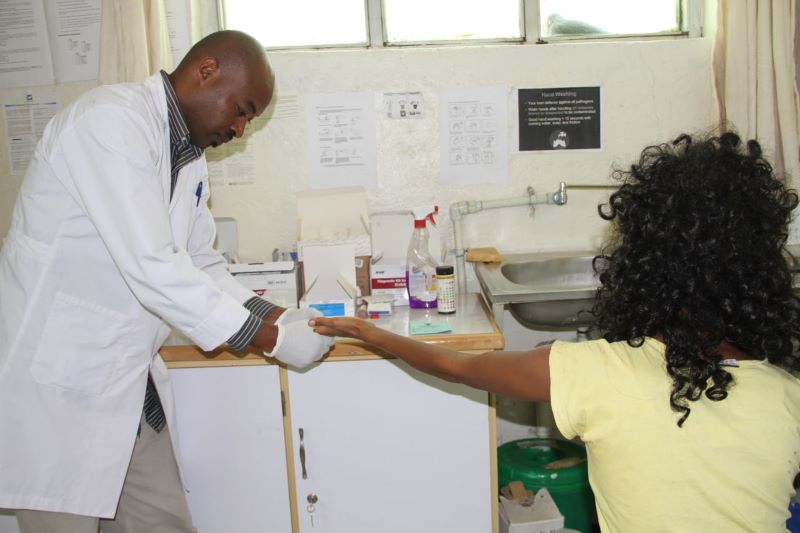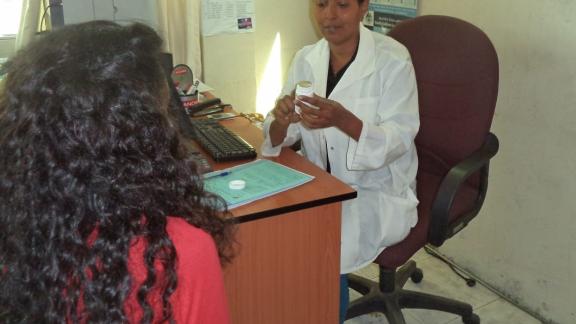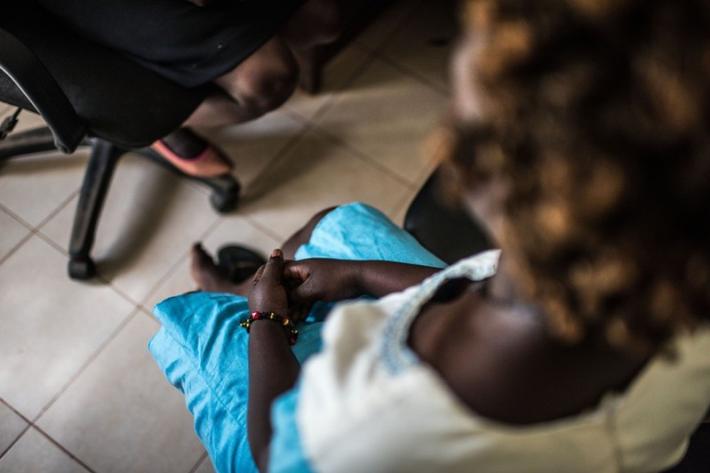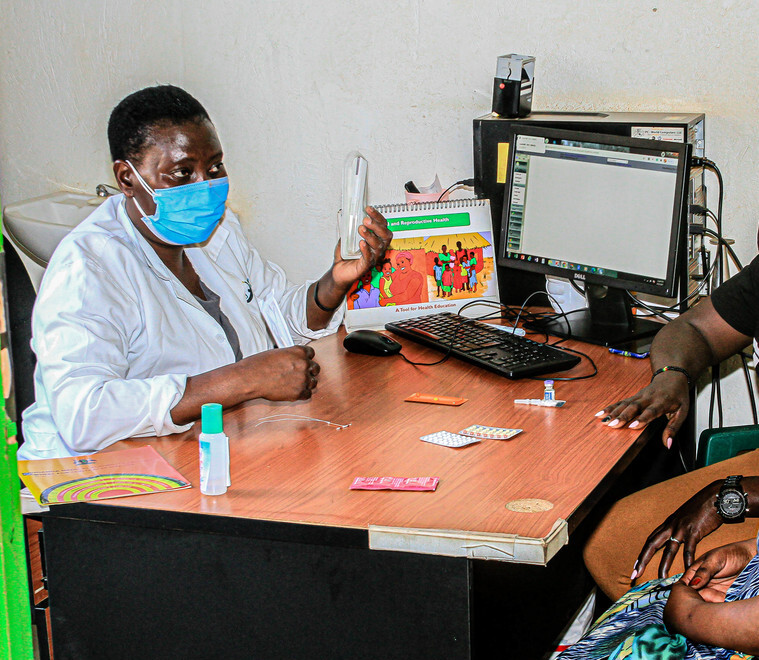By Yvonne TATAH
Across the globe, female sex workers (FSWs) face formidable barriers to accessible, acceptable, appropriate and quality health services. Due to the nature of their work, which involves having sexual relations with multiple male clients, FSWs are at a heightened risk of HIV infection. Globally, female sex workers are estimated to be 30 times more likely to be living with HIV than other women of reproductive age.
In Ethiopia, the case is no different as many FSWs cite various vulnerabilities and challenges that they face. These include stigma, discrimination and marginalization which significantly impact their access to essential healthcare services, in turn increasing their susceptibility to HIV and other sexually transmitted infections (STIs). This, according to IPPF’s Member Association in the country the Family Guidance Association of Ethiopia (FGAE) which has over the years instituted various programmes and interventions aimed at addressing some of the healthcare challenges faced by this vulnerable population. HIV prevalence among female sex workers (FSWs) in Ethiopia is approximately 23%.
Mr. Abadi Kalayou, FGAE’s Executive Director says that the risks and vulnerabilities of FSWs in Ethiopia are further compounded by a lack of education on HIV prevention and the social stigma that prevents them from seeking regular health check-ups and testing.
“From our work with FSWs, we have established that societal judgement and mistreatment, including in health facilities often leads FSWs to avoid seeking medical services. This results in late diagnoses, higher rates of untreated infections and avoidable health complications. Additionally, many of these women often encounter violence, exploitation, and a lack of legal protection, creating additional barriers to positive healthcare behaviour,” he says.
Recognizing these challenges, FGAE has been a pioneer in expanding access to sexual and reproductive health services across Ethiopia since its inception in 1966. As a non-governmental, volunteer-based organization, FGAE has developed a robust network of clinics to serve key and priority populations, including FSWs.
Interventions in hotspot locations for female sex workers in Ethiopia
To address the specific healthcare needs of FSWs, FGAE has established 10 dedicated Female Sex Worker-Friendly Clinics (FSWFC) since 2010. These clinics are strategically located in nine HIV hotspot towns namely; Adama, Addis Ababa, Bahir Dar, Dessie, Diredawa, Gambella, Hawassa, Jima, and Logia, where the prevalence of HIV is highest. The clinics are designed to be accessible and discreet, ensuring FSWs can receive healthcare without fear of stigma or discrimination.
Each FSWFC is staffed by healthcare providers specially trained to offer non-judgmental, compassionate, and comprehensive care. The services provided at these clinics are tailored to meet the specific needs of FSWs and their intimate partners, addressing a wide range of health concerns from HIV prevention and treatment to sexual and reproductive health. By integrating a wide range of services into a one-stop-shop model, FGAE ensures that FSWs receive holistic care, improving their overall health outcomes.
The FSWFCs offer a comprehensive range of HIV/AIDS services designed to provide holistic care. These services include awareness programs to educate FSWs about HIV/AIDS and preventive measures, peer education and support groups, and proactive HIV testing and counselling. Voluntary testing and counselling services are also available, promoting a proactive approach to HIV prevention and care.

Pre-exposure prophylaxis (PreP) is provided to reduce the risk of HIV infection among high-risk individuals. FGAE offers HIV self-testing kits, allowing FSWs to perform tests privately and at their convenience. Post-exposure prophylaxis (PEP) is available as an emergency treatment to prevent HIV infection after potential exposure. Comprehensive HIV care and treatment plans are provided for HIV-positive FSWs, including regular monitoring, counselling, and medical support. Anti-retroviral therapy (ART) is accessible to manage their condition and improve their quality of life.
One FSW shared her experience with FGAE’s Female Sex Worker-Friendly Clinics:
"In Ethiopia, female sex workers encounter numerous challenges, such as difficulties in visiting a health center because of the fear of being stigmatized. However, one day, one of my friends told me to visit an FGAE Clinic. I went and received services, including HIV/AIDS counselling, testing, and STI screening and management. I was so happy with the quality of care I received, that I recommended the clinic to a friend. She, too, received excellent services and became a regular client, just like me."
Discretion in accessing services
FGAE’s approach to providing healthcare services to FSWs is grounded in innovation and best practices. One key innovation is the free-of-charge model for all services offered at the FSWFCs, removing financial barriers.
The discreet nature of these clinics ensures FSWs can access services without fear of stigma or discrimination. The strategic location of the clinics in high-risk areas, coupled with operating hours that align with FSWs' schedules, enhances accessibility. Peer education and support groups also play a critical role in fostering community support and sharing vital health information. Healthcare providers at these clinics are specially trained to offer non-judgmental and compassionate care, ensuring that FSWs feel respected and supported when they seek medical help.
The commitment of FGAE to supporting FSWs is echoed in the words of the Petros Gechere Sabore, Clinical Service Manager:
"I am proud of FGAE's unwavering commitment to providing essential HIV/AIDS services to female sex workers. Our Strategic Plan places this group at the forefront, ensuring they have access to high-quality HIV/AIDS and sexual and reproductive health services. We have strengthened our community-to-clinic referral system, conducted targeted outreach programs, and integrated comprehensive services into our health facilities, all supported by trained peer educators and case managers.
Our efforts have significantly increased awareness and health-seeking behaviours among female sex workers, leading to improved access to HIV testing, counselling, and Anti-Retroviral Therapy. Through capacity building, we have enhanced the ability of our service providers to deliver effective HIV/AIDS care, resulting in better health outcomes and an improved quality of life for those we serve."
The impact of FGAE’s dedicated services for FSWs in Ethiopia has been profound. Since the establishment of the FSWFCs, 178,137 FSWs have accessed essential healthcare services that were previously out of reach. These clinics have played a pivotal role in reducing HIV prevalence among FSWs and improving overall health outcomes within this vulnerable community.
Satisfactory sexual reproductive health services at FGAE
FGAE’s FSW clients highlight the transformative effect of these services. They report feeling safer and more supported, knowing they can access non-judgmental and comprehensive care. These are the sentiments of one such client.
"One day, I fell ill and decided to visit the FGAE Clinic. The nurse welcomed me warmly and suggested that I undergo HIV counselling and testing. After a thorough and compassionate counselling session, I agreed to the HIV test. When the results came back, the nurse gently informed me that I had tested positive for HIV. The news shocked me, and I struggled to process what it meant for my life.
After I recovered from the initial shock, the nurse continued to counsel me with patience and care. She encouraged me to start Anti-Retroviral Therapy (ART) immediately, and I agreed. Thanks to my adherence to the treatment plan, I was able to regain control of my health and my life. I even opened a beauty salon in one of the cities in Ethiopia.
Today, I am married and the mother of a beautiful daughter. Thanks to the ART treatment and the comprehensive counselling I received at the FGAE Clinic, my daughter's HIV status is negative. The availability of PreP, PEP, and ARVs at the FGAE Clinic saved my life and enabled me to build a future. Now, I am able to support and manage my family, including my daughter and husband, while running my beauty salon—something I never thought possible before receiving care at the FGAE Clinic."
FGAE’s holistic approach to SRH services
The holistic approach adopted by FGAE has not only addressed their immediate health needs but has also significantly enhanced their long-term well-being through ongoing support and education.
The commitment of FGAE to this cause is reflected in the words of the Executive Director:
"I am deeply pleased with the availability of the FGAE Clinic program in Ethiopia. Our organization’s mission is to ensure that every female sex worker in Ethiopia has access to the quality, friendly healthcare services she needs, without fear of stigma or discrimination. We are committed to expanding our services and continuously innovating to meet the evolving needs of this community."
FGAE has made significant strides in empowering FSWs through its pioneering HIV/AIDS services. By recognizing the unique challenges faced by FSWs and responding with tailored, compassionate, and comprehensive care, FGAE has not only improved health outcomes but also fostered a sense of dignity and respect among this marginalized group.
A new report by UNAIDS indicates that progress has been made in preventing new HIV infections, which have fallen by 59% in eastern and southern Africa since 2010. It indeed, is the efforts of organizations such as FGAE that have significantly contributed to these preventive efforts.
As it looks to the future, its commitment to expanding services and advocating for the rights of FSWs remains steadfast. By continuing to innovate and adapt to the needs of this community, FGAE is paving the way for a more inclusive and supportive healthcare system in Ethiopia. The organization’s efforts serve as a powerful example of how targeted, compassionate care can transform lives and empower vulnerable communities.
Also read: Accessing quality health services as a female sex worker in Lesotho
Follow IPPF Africa Region on Facebook, Twitter, Instagram and You Tube.
when
country
Ethiopia
region
Africa
Related Member Association
Family Guidance Association of Ethiopia











